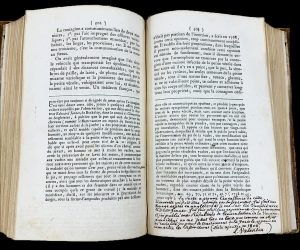HSLS librarians have worked with health sciences faculty and students on dozens of systematic reviews over the years and, in acknowledgement of their scholarly contributions, have typically been included as co-authors on final manuscripts. Unfortunately, that has not always been the case for our librarian colleagues at other colleges, universities, and academic medical centers. For that reason, the Medical Library Association (MLA) and the Canadian Health Libraries Association/Association des bibliotheques de la sante du Canada (CHLA/ABSC) have issued a statement asking journal editors, publishers, and guideline associations to ensure that librarians and other information professionals assisting with systematic reviews receive appropriate credit for their contributions. MLA and CHLA/ABSC encourage these groups to clarify their authorship criteria to make explicit reference to the contributions of librarians and to promote adherence to the criteria by formally endorsing the MLA/CHLA/ABSC statement. If you are a journal editor or member of a guideline association, we encourage you to read the full statement and to partner with MLA/CHLA/ABSC by becoming a formal co-signing organization.
When Seeing Isn’t Believing: Identifying Visual Health Misinformation
Can you tell which of these images are real people and which of them are AI-generated faces? Find the answer at the end of this article!

Deceptive visualizations are not only produced by bad actors hoping to confuse or mislead people. They can also be found in scientific publications, official health department communications, and news reports from generally trustworthy sources. These images are not always designed with malicious intent, but it can be extremely difficult to determine whether they are inaccurate. Of concern, evidence suggests that visual misinformation may be particularly persuasive and can impact viewers’ emotions, attitudes, and behaviors.
HSLS is offering a new online class, When Seeing Isn’t Believing: Identifying Visual Health Misinformation, on Tuesday, March 28, at 3 p.m. This one-hour interactive class will introduce attendees to visual health misinformation as a particular problem for the scientific community and explore the breadth and potential impact of the issue. Continue reading
Streamlining NGS Data Analysis with Partek Flow: Simplifying the Complexities of Bioinformatics
Partek Flow is a robust software application for analyzing high-throughput next-generation sequencing (NGS) data. Developed by Partek Incorporated, it is aimed at providing researchers with a comprehensive suite of NGS data analysis tools, including modules for bulk and single-cell RNA-seq analysis, ChIP-seq analysis, and more.
NIH Releases Public Access Plan for Public Comment
The National Institutes of Health (NIH) announced that the NIH Plan to Enhance Public Access to the Results of NIH-Supported Research (NIH’s Public Access Plan) is now available for public review and comment. NIH prepared this plan to accelerate access to the results of NIH-funded research and address the guidance issued last August by the White House Office of Science and Technology Policy (OSTP) on equitable public access to federally funded research results.
Treasures from the Rare Book Room: Fighting Smallpox

The authors of the historical and practical treatise on inoculation, Traité historique et pratique de l’inoculation (Paris 1799), were both champions of prophylaxis experimentation with preventive treatments for smallpox. Both were French physicians and military surgeons. Francois Dezoteux (1724-1803) participated in the War of the Austrian Succession. He established a school of military surgery in Paris, served as inspector of military hospitals, and studied the success of the Suttonian method of inoculation in England. Louis Valentin (1758-1829) served as military surgeon on Saint-Domingue (in present-day Haiti), but in 1793 he had to flee to the United States, where he was in charge of treating French sailors in hospitals in Virginia. While there, he gained experience in inoculation against smallpox.
Changes to Getting Books at Falk Library
During ongoing library construction, access to books on the shelves has evolved as space considerations change. Starting in February, books in the General Collection and Medical Humanities Collection are unavailable for browsing when visiting Falk Library.
If you need a book at Falk Library, you can:
- View the book’s status online with PittCat and request books for pickup
- Visit the Falk Library Main Desk during regular hours
- Call Falk Library at 412-648-8866 for assistance
The Leisure Reading Collection books, including newly published fiction and non-fiction titles, continue to be available on the library’s main floor.
HSLS Staff News
The HSLS Staff News section includes recent HSLS presentations, publications, staff changes, staff promotions, degrees earned, and more.
News
Anthony Harris, MSIS, has been promoted to Instructional Technology Manager for the NNLM All of Us Program Center (NAPC). In this role, he acts as a super-user to maintain and enhance the All of Us Training and Education Platform (TEP); leads the investigation, pilot testing, and evaluation of new educational technologies to enhance learning and engagement; and works closely with the NAPC evaluation team to support data visualization for learning outcomes and other key metrics.
